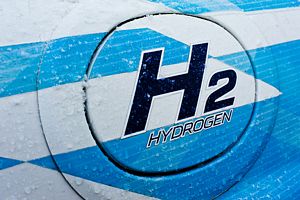|
By accessing/using The Crittenden Automotive Library/CarsAndRacingStuff.com, you signify your agreement with the Terms of Use on our Legal Information page. Our Privacy Policy is also available there. |

Thinking of Putting Hydrogen in Your Gasoline? Think Again
|
|---|
|
|
Thinking of Putting Hydrogen in Your Gasoline? Think Again
Jason Lancaster
April 6, 2012
Gas prices are always volatile, but lately they seem to keep climbing. Most people are looking for ways to lower expenses and save some money, especially at the pump. Hybrid cars promise to deliver greater gas mileage, but the price tags are more than many people can afford. There are also people out there looking to get rich quick off your desire to improve fuel economy, and one thing they are promising is that hydrogen is the answer to your prayers. While the claims that hydrogen can improve gas mileage are certainly intriguing, they are also false.
The Claims
Before deciding to add hydrogen to your fuel, you should understand how the system claims to work. The theory is that a supplemental hydrogen generator will increase your gas mileage by up to 90 percent using nothing more than distilled water. The sales pitch makes it sound like a winning situation all the way around.
Electricity from the car separates the water into its base units of hydrogen and oxygen. A highly combustible gas, the hydrogen will provide your car with energy and the oxygen will cycle through the engine with the rest of the air. Ads claiming that your car can go for hundreds of miles on one gallon of water can certainly entice you to make the investment, but there are several flaws with the theory.
The Flaws
There are several problems with the claims made by the hydrogen scam artists. Even if you aren’t a whiz at chemistry, you will agree that these flaws make trying to use hydrogen a bad idea.
Igniting the hydrogen for power could easily ignite the fuel, a situation you definitely want to avoid.
Gasoline is actually injected into the engine as a mist. Converting the hydrogen into the appropriate mist would thin it, preventing the necessary explosion from occurring at all.
The electricity pull that is required to separate the hydrogen and oxygen can actually burn out your alternator and battery.
Tampering with your car’s fuel delivery system by adding this type of kit can void any warranty.
The increased heat levels produced by hydrogen could cause serious damage to your engine.
The energy required to separate the hydrogen and water will be more than the energy produced by it. Your car will have to make up for the lost energy by using more fuel, resulting in lower mileage.
The hydrogen claim has been floating around for several years. Perpetuated by people looking to make money off your desire to save some money, the claims continue to reappear every time gas prices take a jump. The damage to your car could be severe, ultimately costing you more money in the end. A better way to save money at the pump is to drive less aggressively, keep up with oil changes and try to combine trips to the store. Don’t risk damage to your fine car by falling for the claims, especially if you’re driving a fine classic car.
Author Jason Lancaster is the editor of AccurateAutoAdvice.com, a website offering extensive information on all aspects of car ownership, including a scathing review of hydrogen-gasoline injection systems.


















